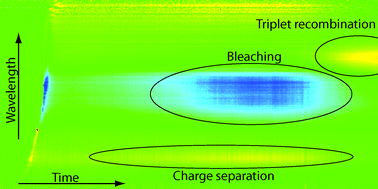Charge separation and (triplet) recombination in diketopyrrolopyrrole–fullerene triads†
Abstract
Synthesis and photophysics of two

- This article is part of the themed collection: In honour of Jan Verhoeven
* Corresponding authors
a
Molecular Materials and Nanosystems, Eindhoven University of Technology, P.O. Box 513, Eindhoven, The Netherlands
E-mail:
r.a.j.janssen@tue.nl.
b Molecular Electronics, Stratingh Institute for Chemistry and Zernike Institute for Advanced Materials, University of Groningen, Nijenborgh 4, Groningen, The Netherlands
c Dutch Polymer Institute (DPI), P.O. Box 902, Eindhoven, The Netherlands
d Molecular Photonics Group, Van't Hoff Institute for Molecular Sciences, Universiteit van Amsterdam, Nieuwe Achtergracht 129, Amsterdam, The Netherlands
Synthesis and photophysics of two

 Please wait while we load your content...
Something went wrong. Try again?
Please wait while we load your content...
Something went wrong. Try again?
B. P. Karsten, R. K. M. Bouwer, J. C. Hummelen, R. M. Williams and R. A. J. Janssen, Photochem. Photobiol. Sci., 2010, 9, 1055 DOI: 10.1039/C0PP00098A
To request permission to reproduce material from this article, please go to the Copyright Clearance Center request page.
If you are an author contributing to an RSC publication, you do not need to request permission provided correct acknowledgement is given.
If you are the author of this article, you do not need to request permission to reproduce figures and diagrams provided correct acknowledgement is given. If you want to reproduce the whole article in a third-party publication (excluding your thesis/dissertation for which permission is not required) please go to the Copyright Clearance Center request page.
Read more about how to correctly acknowledge RSC content.
 Fetching data from CrossRef.
Fetching data from CrossRef.
This may take some time to load.
Loading related content
